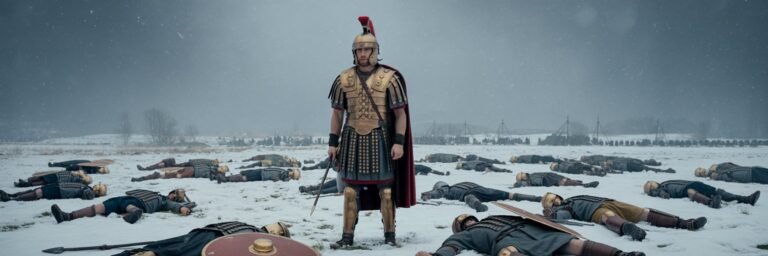INTRODUCTION
Civil Wars, at their core, are internal battles for identity, power, and sovereignty. The worst of humanity can sometimes be seen during these times of tumult and upheaval, as brother turns against brother and countrymen become enemies. Wrenching societies apart, civil wars are often benchmarks in history that shape nations and their people irrevocably. This is a journey through time as we unravel the complexity and turmoil of civil wars, and examine the top ten events that shaped these internal conflicts.
HISTORICAL BACKGROUND
The roots of civil wars lie deeply embedded in historical events. From ancient Rome’s social wars fought in the 1st century BCE to the Syrian conflict still occurring today, each civil war culminated from a turning point in history. One such transformative event was the English Civil War in the mid-17th century. The struggle between the monarchy and parliament for supremacy led to a series of conflicts that ultimately paved the way for constitutional monarchy in England. Similarly, America’s Civil War in 1861-1865 erupted due to tensions surrounding state rights and slavery, a issue embedded in the foundation of the newly formed nation.
THEORIES AND INTERPRETATIONS
There’s a wealth of theories and interpretations about what causes civil wars. Traditional views suggest socio-economic factors and political instability as primary causes. Contemporary theories speak of a different interpretation, attributing civil wars to “greed” and “grievance”. Paul Collier, an economist from Oxford, has advocated this theory, arguing that rebel groups are motivated by the potential for personal gains, manipulating grievances for recruitment purposes. On the opposing end, scholars like James C. Scott argue that civil wars are centrally about inequalities, injustices and resentments that fester over time.
MYSTERIES AND CONTROVERSIES
The fog of war obscures many truths, leading to mysteries and controversies. One such mystery is the trigger event for the Spanish Civil War. In July 1936, a partially successful military coup led to a devastating three-year war, but debates persist if this coup itself or the political instability preceding it, ignited the war. Among controversies, a noteworthy one lies in the Nigerian Civil War where the Biafran Republic tried seceding. The ambivalent role of foreign countries, especially Britain and USSR, has been much debated, with accusations of turning a blind eye to humanitarian abuses for maintaining strategic interests.
SYMBOLISM AND CULTURAL SIGNIFICANCE
Civil wars aren’t just political or military events; they also have a profound cultural and symbolic significance – often embodied through art, literature, and propaganda. For instance, during the Russian Civil War, the Bolsheviks used striking propaganda posters to inspire comradeship and vilify the White movement. In American Civil War, the songs like the “Battle Hymn of the Republic” and “Dixie” became symbols of unionist and Confederate sentiments respectively.
MODERN INVESTIGATIONS
Modern investigations into civil wars profit enormously from an interdisciplinary approach. Among fields like political science, historiography, anthropology, and sociology, computational social science has also contributed to our understanding. For example, a study by Ugur Demiryurek and colleagues used extensive digitized data to analyze battles during the American Civil War, providing valuable insights into military strategies. Today’s researchers are increasingly combining traditional historical research with new methods to uncover fascinating insights into civil wars.
LEGACY AND CONCLUSION
There is no question that civil wars leave scars on a country’s soul that can take generations to heal. Yet they also fundamentally shape the trajectories of nations. The American Civil War led to the abolition of slavery and set the precursor for Civil Rights Movements in the 20th century. Spanish Civil War became a precursor to WWII and heralded an era of authoritarianism in Spain.
As we reflect on the events that have shaped civil wars, we see that these battles are not just about countrymen turning against each other, but reflect deeper issues ingrained in the fabric of society. They are mirrors revealing the best and worst of us, symbols of deep-seated frustrations and desires for change.






